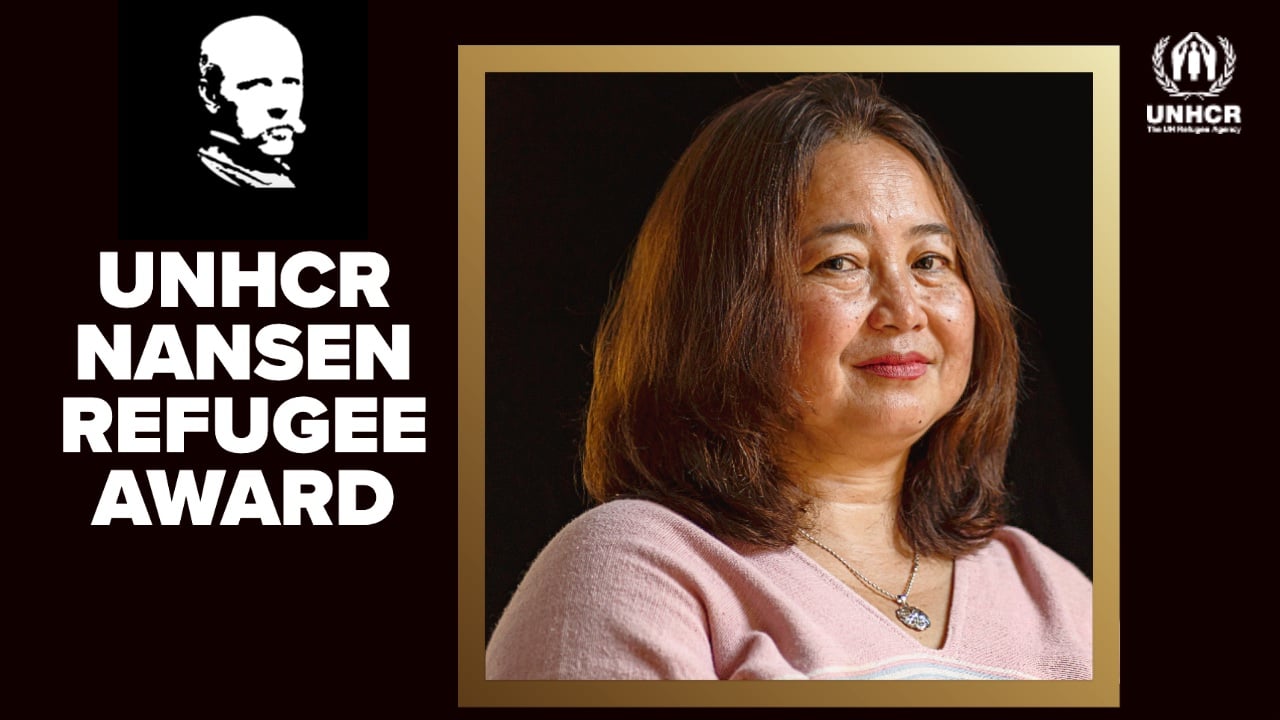UNHCR steps up aid for displaced in Myanmar as conflict intensifies
UNHCR steps up aid for displaced in Myanmar as conflict intensifies

UNHCR, the UN Refugee Agency, is stepping up its emergency response to assist hundreds of thousands of internally displaced people (IDPs) in Myanmar as their number crossed the 800,000 mark – doubling since February 2021.
Security is deteriorating rapidly across the country as fighting and armed conflict intensifies with no sign of abating.
UNHCR forecasts an accelerating trend of displacements in the coming weeks and months.
Some 440,000 people have been newly displaced since February 2021, according to UNHCR data, adding to an existing 370,000 who had fled their homes previously.
UNHCR and partners are scaling up operations and deploying additional resources to support as many of the displaced as possible, complementing local community responses.
In the South-East of the country, Kayin, Kayah, Mon and Shan (South) states as well as Bago (East) and Tanintharyi regions collectively account for more than half of the 440,000 newly displaced civilians. Kayin and Kayah states remain the most affected as hostilities between various armed groups have triggered large-scale displacements.
Another conflict-affected area with pressing humanitarian needs is Myanmar’s North-West, where about 190,000 people remain displaced in Chin State, Magway Region and Sagaing Region.
Humanitarian access in many parts of Myanmar remains restricted due to insecurity, roadblocks and challenges in obtaining access approvals. As a result, host communities and local responders continue to play a leading role in assisting displaced populations – demonstrating solidarity with each other by donating what they can.
UNHCR has been working with UN agencies, local partners and communities to assist those affected wherever possible, including displaced and stateless populations and host communities. In 2021, UNHCR’s emergency relief assistance reached some 170,000 individuals in nine states and regions in Myanmar.
In all locations, UNHCR and partners distributed relief items including tarpaulins, ropes, blankets, kitchen sets, mosquito nets, buckets, sleeping mats, sanitary kits, COVID-19 personal protective equipment, solar lamps, and winterization kits for adults and children.
In Shan State, where a growing number of IDPs have arrived from conflict-affected Kayah State since the start of 2022, UNHCR recently established a temporary base in Taunggyi to coordinate distribution of emergency aid with partners.
Provision of relief items to Kayah IDPs in and around Taunggyi started in mid-January and quickly expanded to incorporate neighbouring townships. Within a month, UNHCR and partners were able to reach some 10,000 IDPs in Shan as well as 2,000 in Kayah.
The humanitarian situation in Myanmar remains precarious with increased vulnerabilities linked to rising commodity prices, job and income losses, disruptions to basic services and prolonged insecurity. The majority of IDPs are consequently dependent on humanitarian support for survival.
Some 600,000 stateless Rohingya in Rakhine State, including some 148,000 displaced in camps, villages and displacement sites, also remain highly vulnerable and require humanitarian support.
Despite operational challenges, UNHCR continues to stay and deliver in Myanmar. The agency remains committed to providing critical humanitarian assistance to those in need and calls for full, safe and unhindered humanitarian access across Myanmar, so that no disruption to lifesaving work occurs for local, national, and international aid agencies.
In 2022, UNHCR will respond to the ongoing crisis by expanding its protection and operational presence where new displacements have occurred. A total of US$56.7 million is needed to ensure adequate humanitarian assistance and support vulnerable communities.
Our priority will be on maintaining basic safeguards, advocacy for improved access to fundamental rights, mitigating the risk of negative coping strategies, preventing forced returns and building resilience for over 1.2 million IDPs and stateless people in Myanmar.
For more information on this topic, please contact:
- In Yangon, Reuben Lim Wende, wende@unhcr.org
- In Bangkok, Kasita Rochanakorn, rochanak@unhcr.org, +66 64 932 0803
- In Geneva, Matthew Saltmarsh, saltmars@unhcr.org, +41 79 967 9936
- In New York, Kathryn Mahoney, mahoney@unhcr.org, +1 347 443 7646









